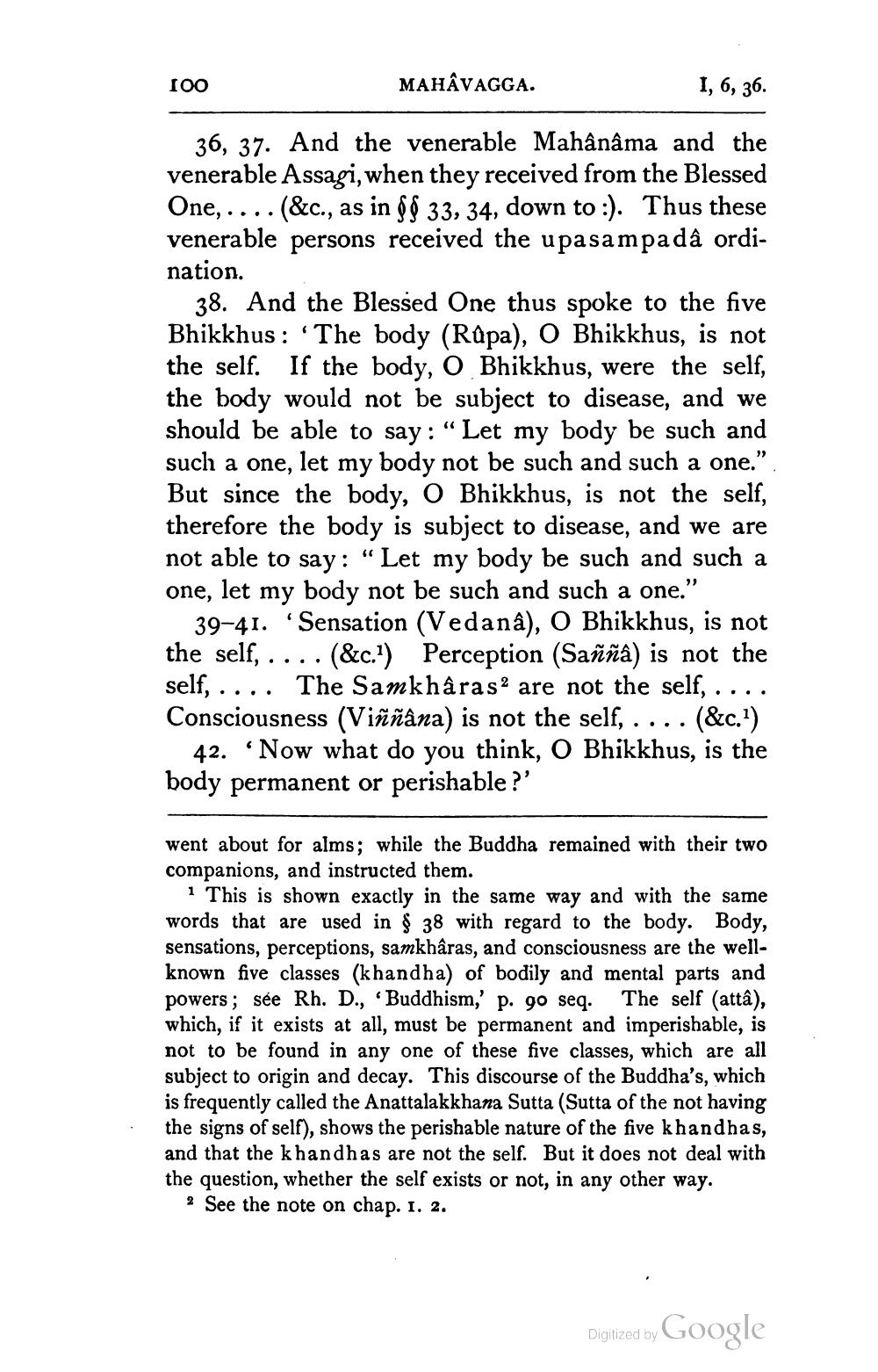________________
MAHAVAGGA.
1, 6, 36.
36, 37. And the venerable Mahânâma and the venerable Assagi, when they received from the Blessed One,.... (&c., as in §§ 33, 34, down to :). Thus these venerable persons received the upasampadâ ordination.
100
38. And the Blessed One thus spoke to the five Bhikkhus: 'The body (Rûpa), O Bhikkhus, is not the self. If the body, O Bhikkhus, were the self, the body would not be subject to disease, and we should be able to say: "Let my body be such and such a one, let my body not be such and such a one." But since the body, O Bhikkhus, is not the self, therefore the body is subject to disease, and we are not able to say: Let my body be such and such a one, let my body not be such and such a one." 39-41. 'Sensation (Vedanâ), O Bhikkhus, is not the self, . . . . (&c.1) Perception (Saññâ) is not the self, . The Samkhâras2 are not the self, Consciousness (Viññâna) is not the self, .
"C
(&c.1) 42. 'Now what do you think, O Bhikkhus, is the body permanent or perishable?'
went about for alms; while the Buddha remained with their two companions, and instructed them.
1 This is shown exactly in the same way and with the same words that are used in § 38 with regard to the body. Body, sensations, perceptions, samkhâras, and consciousness are the wellknown five classes (khandha) of bodily and mental parts and powers; see Rh. D., 'Buddhism,' p. go seq. The self (attâ), which, if it exists at all, must be permanent and imperishable, is not to be found in any one of these five classes, which are all subject to origin and decay. This discourse of the Buddha's, which is frequently called the Anattalakkhana Sutta (Sutta of the not having the signs of self), shows the perishable nature of the five khandhas, and that the khandhas are not the self. But it does not deal with the question, whether the self exists or not, in any other way.
2 See the note on chap. 1. 2.
Digitized by
Google




